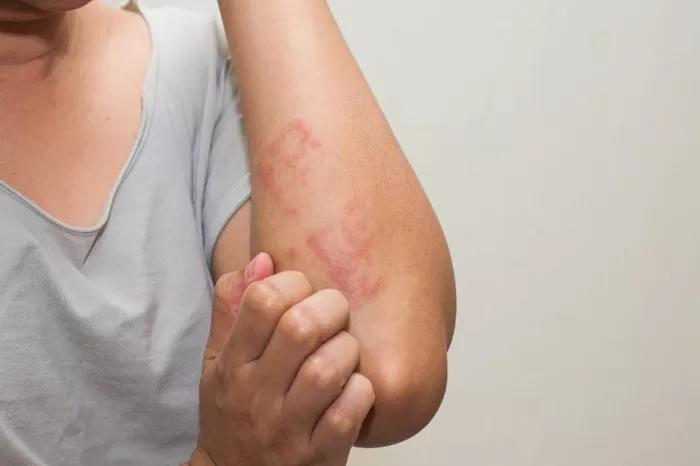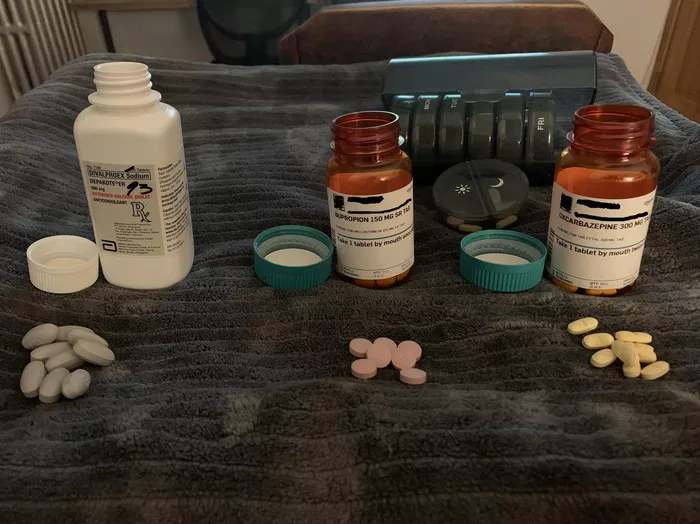Hives, also known as urticaria, are a common allergic reaction that can occur due to various triggers including food, environmental factors, stress, and notably, medications. When medication causes hives, it is due to an allergic reaction where the body’s immune system responds to the drug as if it were harmful. This article explores the duration of hives following a medication reaction, the factors influencing this duration, and effective management strategies.
Overview of Hives
Hives are characterized by raised, itchy red welts on the skin’s surface. These welts can vary in size and shape, and might be surrounded by areas of redness known as flares. Symptoms can appear anywhere on the body and typically start suddenly. While hives themselves are not contagious, the discomfort and appearance can be distressing to individuals experiencing them.
Pathophysiology of Medication-Induced Hives
Immune System Response: Medication-induced hives occur when the immune system erroneously identifies a medication as a pathogen. This misidentification triggers the release of histamine and other chemicals from cells in the skin, known as mast cells.
Histamine Release: Histamine increases the permeability of the blood vessels, leading to fluid leakage into the surrounding tissue, which appears as a welt.
Acute vs. Chronic Urticaria: Hives can be classified as either acute or chronic. Acute hives last less than six weeks and are commonly caused by allergies to foods or medications. Chronic hives extend beyond six weeks and can have more complex causes including idiopathic origins.
Common Medications That Trigger Hives
Certain medications are more likely to cause allergic reactions including hives. These include:
Antibiotics: Penicillins and sulfonamides are common culprits.
NSAIDs (Non-Steroidal Anti-Inflammatory Drugs): Such as aspirin and ibuprofen.
ACE Inhibitors: Used for hypertension and congestive heart failure.
Opiates: Codeine and morphine can directly trigger mast cells without an immune reaction.
Duration of Hives After Medication Reaction
The duration of hives in response to a medication allergy can vary widely from person to person based on several factors:
Immediate vs. Delayed Reactions
Immediate Reactions: These occur within minutes to a few hours after medication intake and are usually acute. Immediate reactions are more likely to resolve quickly once the medication is discontinued and appropriate treatment is started.
Delayed Reactions: These can occur hours to days after exposure to the offending medication and may persist longer.
Individual Health and History
Personal or Family History of Allergies: Those with a personal or familial history of allergies may experience more prolonged or severe reactions.
Chronic Health Conditions: Underlying health conditions such as autoimmune diseases or chronic infections can complicate or prolong recovery from hives.
Nature and Amount of Medication
Dosage and Duration: Higher doses or prolonged use of a medication can lead to more severe reactions that last longer.
Medication Half-Life: Medications with a longer half-life will remain in the body longer, potentially prolonging the duration of hives.
Treatment and Management of Hives
Effective management of hives involves both treatment of the symptoms and avoiding triggers.
Medical Treatments
Antihistamines: These are the first-line treatment for hives and work by blocking histamine action. Examples include cetirizine, loratadine, and fexofenadine.
Corticosteroids: For severe cases, short-term use of oral corticosteroids may be prescribed to reduce inflammation.
Epinephrine: Used in severe reactions involving anaphylaxis, which can accompany hives in extreme cases.
Home Remedies and Lifestyle Adjustments
Cool Compresses: Applying a cool compress can soothe the itch and reduce inflammation.
Avoiding Triggers: Once a medication triggers hives, it should be avoided in the future and alternatives should be discussed with a healthcare provider.
Stress Management: Stress can exacerbate hives, so techniques like mindfulness, yoga, and adequate sleep are beneficial.
Ongoing Monitoring and Care
Follow-Up: Monitoring by a healthcare provider is crucial, especially if hives recur or persist.
Allergy Testing: Allergy testing might be recommended to confirm the offending medication and identify other potential allergens.
When to Seek Medical Help
Seek immediate medical attention if hives are accompanied by difficulty breathing, swelling of the mouth or throat, or any signs of anaphylaxis, a life-threatening allergic reaction.
Prevention Strategies
Preventing medication-induced hives starts with informed healthcare providers and patients. Thorough medical histories and awareness of potential allergens are essential.
Drug Allergy Alerts: Wearing medical alert tags or carrying a card that lists known drug allergies can prevent unintentional exposure.
Conclusion
The duration of hives caused by medication reactions varies widely, influenced by factors such as the type of medication, the immediacy of the reaction, individual health status, and the promptness of treatment. Understanding these factors can help manage and mitigate the impact of hives. With appropriate care, most cases of acute hives can be effectively managed and resolved within a few days to weeks. However, any case of hives should be taken seriously and monitored closely, especially when it involves potential drug allergies.
[inline_related_posts title=”You Might Be Interested In” title_align=”left” style=”list” number=”6″ align=”none” ids=”7944,7829,7866″ by=”categories” orderby=”rand” order=”DESC” hide_thumb=”no” thumb_right=”no” views=”no” date=”yes” grid_columns=”2″ post_type=”” tax=””]































